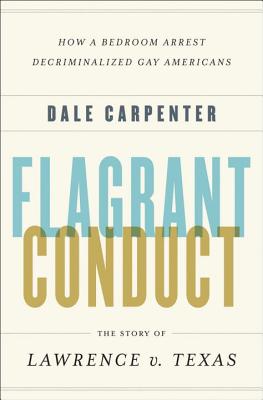By Kenneth Jost
Ronald Reagan reminded us, “Trust, but verify.” Poker players know, “You trust your mother, but you cut the cards.” For journalists – gay, straight, bi, transgender or whatever – one corollary might go like this: “Friends don’t let friends spin them.”
That’s what appears to have happened to some of the best in business, and me too, nearly a decade ago in the coverage of the landmark Supreme Court case Lawrence v. Texas. That’s the 2003 decision that struck down state laws that made “gay sex” a crime.
 You might remember the magisterial closing by Justice Anthony M. Kennedy: “The petitioners are entitled to respect for their private lives. The State cannot demean their existence or control their destiny by making their private sexual conduct a crime.”
You might remember the magisterial closing by Justice Anthony M. Kennedy: “The petitioners are entitled to respect for their private lives. The State cannot demean their existence or control their destiny by making their private sexual conduct a crime.”
You might also remember that the case started when a deputy Harris County sheriff entered the East Houston apartment of John Lawrence and found Lawrence and Tyron Garner engaged in anal sex.
A decade later, however, we learn from Dale Carpenter’s book on the case, Flagrant Conduct (W.W. Norton, March 2012) that that account is, well, wrong. Lawrence and Garner were not having sex when they were arrested on the evening of Sept. 17, 1998. They weren’t even naked. They weren’t lovers or boyfriends, not even fuck-buddies.
The lawyers from Lambda Legal who shepherded the case to the U.S. Supreme Court knew that all along, according to Carpenter’s account as summarized in an insightful review by Slate’s Supreme Court correspondent Dahlia Lithwick in The New Yorker. But Lawrence and Garner were persuaded to plead “no contest” to the charge of violating Texas’s gay-specific anti-sodomy law to pave the way for the long-sought vehicle for challenging such laws. And then, recognizing that Lawrence and Garner were not made-for-TV plaintiffs, the lawyers told them to stay out of sight.
As Lithwick recalls, the details of the case were “gauzy” to those of us covering the court back then. We knew that police responded to a false report of a domestic disturbance phoned in by a jealous boyfriend of Garner’s. We also knew, from photographs, that Lawrence was a middle-age white man and Garner a much younger and somewhat effeminate African American. We did not know, as Carpenter now discloses, that Lawrence and Garner both had police records. And we did not know that Lawrence and Garner were staying out of the limelight at their lawyers’ directions because the stories of their somewhat checkered lives would not generate the kind of sympathy and support that the gay rights lawyers wanted.
Carpenter, a law professor at the University of Minnesota, stresses that the Lambda Legal litigators never lied. Maybe not, but they certainly did nothing to avoid misleading. Thus, on the day of the decision (June 26), veteran Supreme Court correspondents wrote that Lawrence and Garner were “prosecuted for having sex” (Linda Greenhouse, New York Times); fined for “engaging in anal sex in their home” (Charles Lane, Washington Post); or “caught having sex” (Joan Biskupic, USA Today). My account in The Supreme Court Yearbook says that the deputy sheriff “came upon Lawrence and Tyron Garner in Lawrence’s bedroom, engaged in anal sex.”
With the spinning exposed a decade later, Lambda Legal executive director Kevin Cathcart was moved to protest in a non-denial denial in Huffington Post. The factual details, Cathcart writes, are “beside the point.” The point was to get a ruling on the constitutionality of anti-sodomy laws. “That is what impact civil rights litigation is about and why we are proud to use it as a tool to end discrimination,” he writes.
It takes nothing away from that worthy goal to note that the point about journalism is to tell the truth, the whole truth and nothing but, as best one can. Every good journalist knows to watch for spin when government officials hold press conferences, political candidates give speeches or industry lobbyists release reports. But it’s too easy to forget that supposed friends can spin too. That’s their job. The journalist’s job is to get past the spin to the real story.
Guest blogger Kenneth Jost is the author of the blog Jost on Justice. A former president of NLGJA’s DC Chapter, Jost, associate editor, CQ Researcher, and Supreme Court editor, CQ Press, has covered legal affairs as a reporter, columnist and editor since 1970. He is a graduate of Harvard College and Georgetown University Law Center, where he is an adjunct professor. Jost is author of The Supreme Court Yearbook (annual series) and The Supreme Court from A to Z and was editor of The New York Times on the Supreme Court, 1857-2008, all published by CQ Press. He was a member of The CQ Researcher team that won the 2002 American Bar Association Silver Gavel award for magazines. Jost also served as chief legislative assistant to then-Rep. Al Gore from 1977-80.
